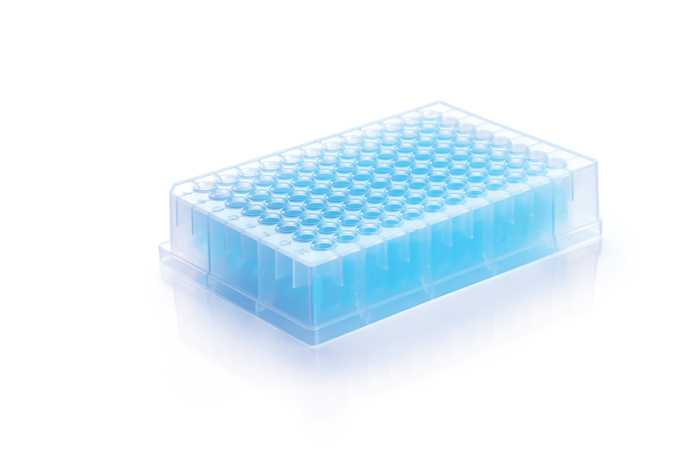WHEATON’S New AntiBIND™ Microplates Virtually Eliminate Non Specific Protein Binding

Complete the form below to unlock access to ALL audio articles.

WHEATON® announces the launch of its new AntiBIND microplate product line that significantly reduces protein binding and adsorption, factors that until now could significantly hamper researchers working with rare proteins. The AntiBIND line of products employs a newly patented technology that changes the surface of polypropylene plates from hydrophobic to hydrophilic, resulting in protein recovery increases of as much as 100 percent compared with competitive low binding plates.
“Our new AntiBIND product line represents a significant breakthrough for protein researchers. By changing the surface of our polypropylene microliter plates from hydrophobic to hydrophilic, we provide superior performance that minimizes both protein adsorption and protein surface binding. Because the proteins are not bound you can be assured of accurate analytical results,” said Wayne Brinster, President and CEO of WHEATON®. “This product line builds on our 126-year history as an innovator of both glass and plastic products purpose built for the specific research needs of our customers.”
Two products in the new AntiBIND line will be launched at the Society for Laboratory Automation and Screening to be held January 23-27 in San Diego: the AntiBIND 0.5mL 96 Deepwell Microplate and the 230 µl 384 well microplate. Two additional products will be launched this spring: a 1.0mL 96 Deepwell microplate and a 2.0mL 96 Deepwell microplate, with additional AntiBIND products in development.
“These specialty microplates provide a significant advantage to our customers who know the difficulties presented by plastic surfaces when working with proteins,” said Brinster. “Surface coatings in the presence of organic solvents can dissolve, leaving researchers with both the problem of binding as well as having a foreign substance to interfere with their test.”

